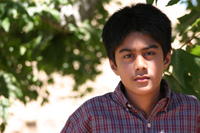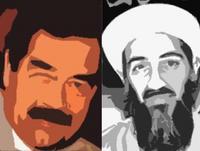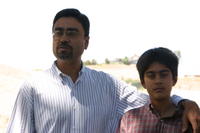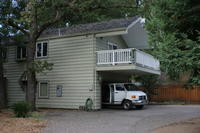Samir and Saddam
 We spent this afternoon with the AKHTER family, a Muslim American family in Gilroy, California, who I first visited in October 2001. I remember eight-year old SAMIR (pictured) the most:
We spent this afternoon with the AKHTER family, a Muslim American family in Gilroy, California, who I first visited in October 2001. I remember eight-year old SAMIR (pictured) the most:
“The kids call me bin Laden’s son, and all of their friends were putting their lunch pails on my face like this, and they called me bin Laden’s face. They smashed lunch pails on my face so that I couldn’t breathe. I said no, I’m not the bad guy, and I don’t want to be a bad guy. I want to be a good guy and I don’t want to go to jail. If I saw the bad guys, I would beat them up.“
“How would you know the bad guys if you saw them on the street?”
“They would have turbans on their head.“
At that moment, I realized the media’s hold on the face of the enemy. I badly wished I could introduce Samir to Sikh children with turbans.
Samir was in third grade when we first talked with him. Now entering junior high school at eleven years old, Samir is taller than me. He opened the door for us and led us inside his new house. Very quiet and reflective, Samir soon opened up and told us about basketball camp and video games. I asked him to talk about school:
 “After 9/11, the kids at school used to call me Saddam Hussein and bin Laden. They still call me that. They don’t do it as much, because I’m bigger now.”
“After 9/11, the kids at school used to call me Saddam Hussein and bin Laden. They still call me that. They don’t do it as much, because I’m bigger now.”
When we first interviewed Samir after 9/11, there was no mention of Saddam Hussein. But in the four years that have passed, the face of the villain has changed. The enemy bin Laden has been conflated into the enemy Saddam—even in the mind of a child targeted by schoolyard taunts.
“What do you want the kids at school to know?” I asked Samir.
“I want them to know I am just as different as they are. There are Hispanics and Irish and Italians. They don’t know that they we are all different.”
I saw a stroke of brilliance here. Most people wish to say that they are the same as everyone else. But Sameer turned this message on its head: everyone else is just as different as he is. We ought to respect each other for the one thing we hold in common: our difference as unique human beings.
 After speaking with Samir, I talked with his father Sohail (pictured), who spoke eloquently about the need for education and understanding. He didn’t want his children to grow up feeling marked by prejudice in this country.
After speaking with Samir, I talked with his father Sohail (pictured), who spoke eloquently about the need for education and understanding. He didn’t want his children to grow up feeling marked by prejudice in this country.
We want to thank Sohail and his wife Nudrat, their children Samir, Zaki, and Maheen (pictured in the header with their parents) for opening their lives to us once again, and treating us with such kindness.
We also want to thank Jagi Auntie and the Goswamy family for donating their beautiful house (pictured below) for the stay of our film crew during our SF Bay Area production.
 The donations of friends and family and good-hearted strangers keep us alive. We still have a long way to go and can use all the support we can get, in any form. Can you help us? Let us know!
The donations of friends and family and good-hearted strangers keep us alive. We still have a long way to go and can use all the support we can get, in any form. Can you help us? Let us know!

